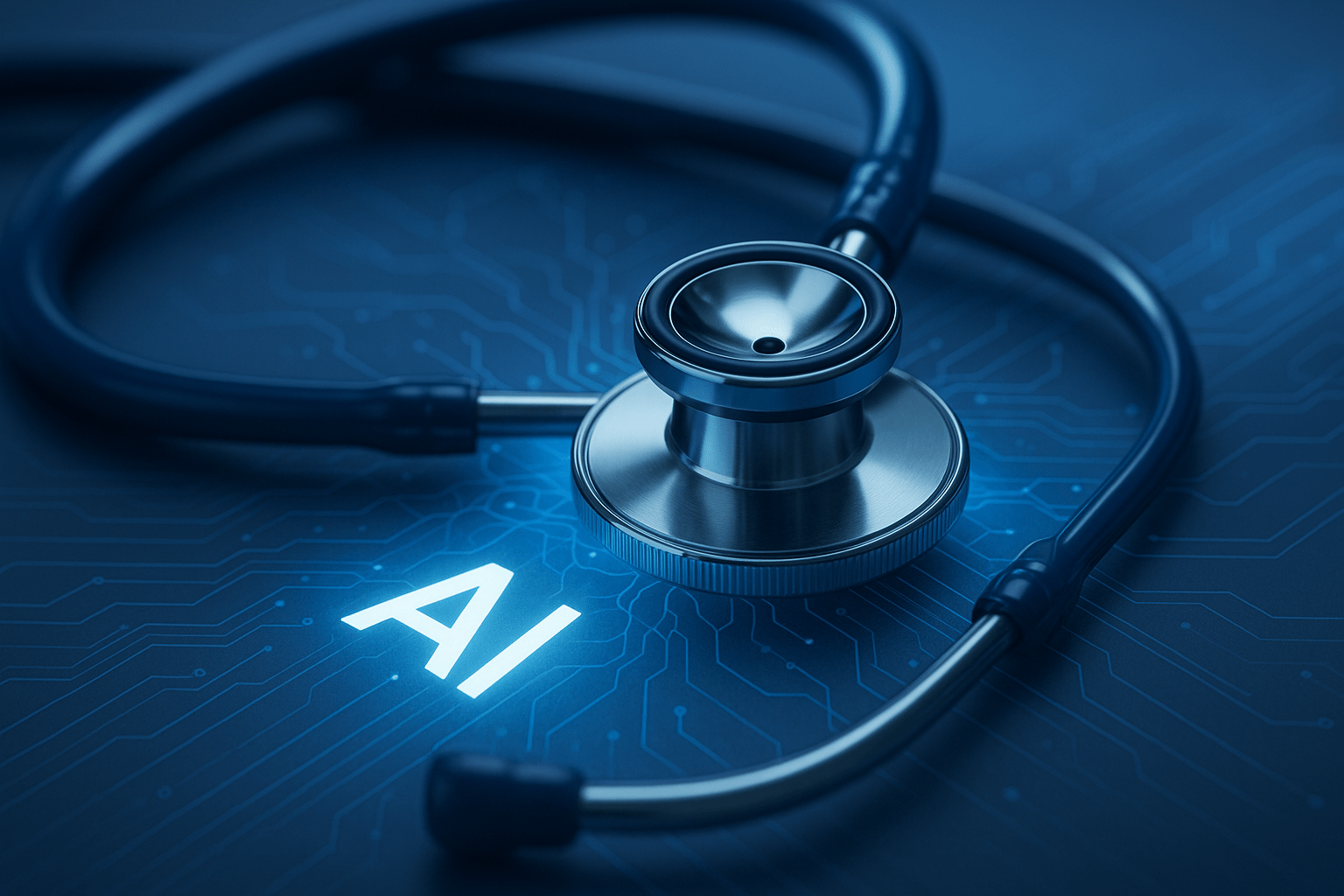Artificial intelligence isn’t coming to healthcare; it’s already here. From analyzing X-rays faster than radiologists to supporting early detection of conditions that often go unnoticed, AI is reshaping how hospitals, doctors, and patients experience care. Yet behind every new technology is the same human mission — to make medicine more precise, efficient, and compassionate.
Smarter Diagnosis: From Pattern Recognition to Prediction
For decades, diagnosis has depended on the trained eye of a clinician who sees what others might miss. AI systems now extend that intuition by reading medical images, lab data, and patient histories in seconds, not to replace expertise, but to enhance it.
Earlier this year, Nature Medicine published findings showing that generative AI models trained on millions of anonymized scans can help detect conditions like lung cancer and diabetic retinopathy earlier than conventional methods. Unlike older diagnostic tools, these systems can show why they highlight certain regions, helping clinicians verify and trust each suggestion.
At Lagos University Teaching Hospital, for instance, radiologists now use an AI-powered imaging tool that highlights subtle fractures invisible to the human eye. A review team found that diagnostic accuracy improved by 28 percent while turnaround time dropped by nearly half, evidence that machine precision works best when guided by human judgment.
What this means for healthcare professionals: AI acts as a diagnostic companion, offering an extra layer of insight while keeping decision-making firmly in human hands.
Personalized Treatment: Medicine That Learns With You
Every patient’s biology, lifestyle, and treatment response differ. Traditional care often relies on averages, but AI makes precision medicine more attainable by recognizing patterns unique to each individual. Machine-learning systems analyze clinical data, medication history, and environmental factors to suggest options tailored to each patient.
Hospitals are beginning to use adaptive AI tools that identify patients who may benefit from earlier interventions, moving care from reactive to preventive.
For example, a learning AI agent in a hospital monitoring system can track changes in vital signs and notify staff hours before a patient’s condition worsens. This kind of support gives medical teams more time to act before an emergency arises.
If you’d like to understand the thinking systems behind these adaptive tools, explore our blog on the 7 Key Types of AI Agents (and How Each of Them Works).
Administrative Relief: Giving Doctors Time Back
Healthcare professionals spend a significant portion of their day managing administrative tasks, from documentation to billing and compliance. AI is now streamlining many of these processes, helping staff reclaim time for patient care.
Model-based AI systems assist with scheduling, data entry, and transcription. Natural-language models convert doctor–patient discussions into accurate, structured records. According to BMC Medical Education’s 2023 review, clinics that integrated AI-assisted administrative systems reduced average documentation time by up to 30 percent while improving data quality and reducing staff fatigue.
These improvements don’t just increase efficiency, they help healthcare workers focus on what matters most: people.
Building Trust: Ethical, Transparent, and Human-Centered
Trust remains the cornerstone of medicine. For AI to earn its place in healthcare, it must operate transparently and ethically. Many hospitals are now using explainable AI systems that make their reasoning visible, so clinicians can review each recommendation before it informs care.
Guidelines such as the World Health Organization’s 2021 framework on AI governance emphasize fairness, accountability, and patient consent. These principles ensure that AI supports rather than disrupts the moral foundations of healthcare.
What this means for healthcare professionals: When systems are transparent and accountable, AI becomes a reliable partner in care, one that strengthens trust rather than replacing it.
The Future of AI-Powered Care
The future of AI in healthcare is not about automation, it’s about collaboration. In the years ahead, hospitals will use interconnected AI agents that work together across tasks: one system analyzing diagnostic data, another predicting patient outcomes, and another summarizing clinical progress for reporting.
This ecosystem reflects how healthcare already works: through teams. When supported by AI, those teams become faster, more coordinated, and more informed. The clinician remains the decision-maker; AI simply makes the pathway to that decision clearer.
To understand how these intelligent systems collaborate, read How AI Works: Strengths, Limitations, and How to Use It Effectively.
At AI Literacy Academy, we help professionals and organizations move from curiosity to confidence, learning how to apply AI thoughtfully, ethically, and effectively in their industries. Visit ailiteracyacademy.org to join our next cohort today!
